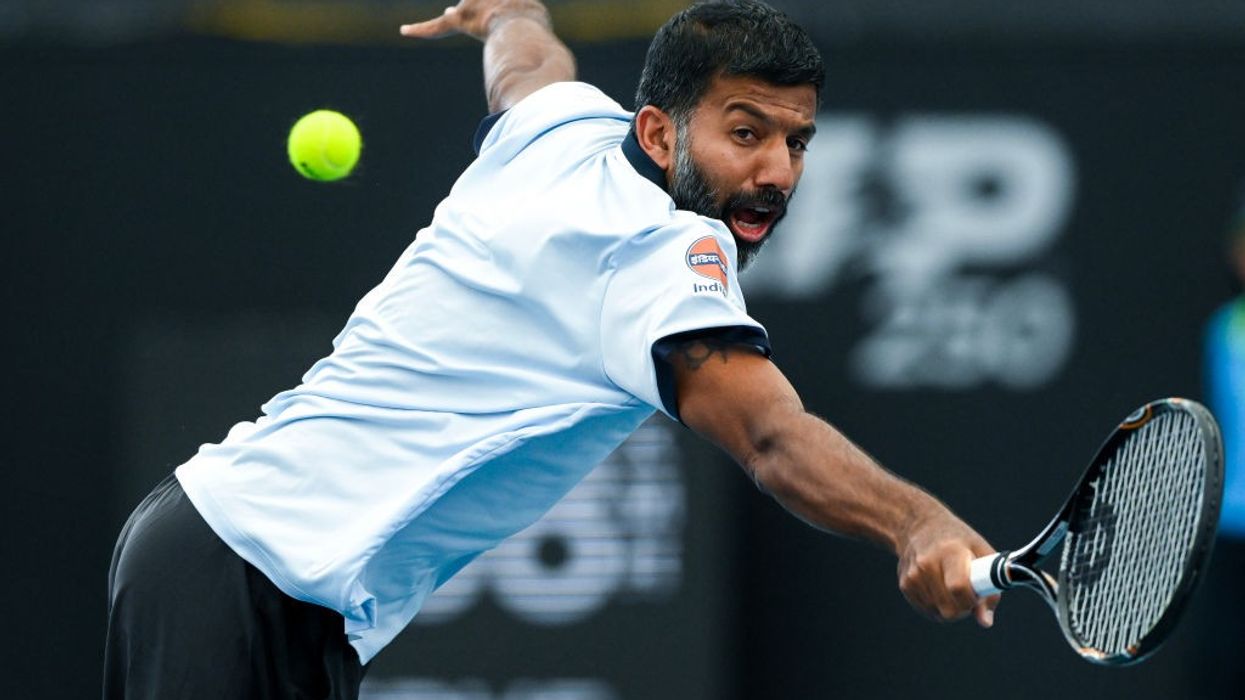ROHAN BOPANNA's worn out knees have not stopped him from climbing the world doubles rankings and the 43-year-old Indian became the oldest player to reach number one after making the Australian Open semi-finals with Matthew Ebden on Wednesday.
Bopanna and Australian Ebden beat Argentine pair Maximo Gonzalez and Andres Molteni 6-4 7-6(5) to ensure that the evergreen Indian would top the rankings once they are updated following the year's first Grand Slam on Monday (22).
Ebden will become world number two having played three more tournaments than Bopanna during the ranking period.
It marked the latest milestone for Bopanna, who became the oldest ATP Masters 1000 champion when he won the Indian Wells doubles crown with Ebden last year and followed it up by becoming the oldest to win a match at the ATP Finals.
Bopanna, who hails from the south Indian state of Karnataka and often jokes that the coffee from his plantation in Coorg was behind his success, said that focusing on his recovery and optimising training had contributed to his longevity.
"The real focus was on that, not to really go out there and run on the treadmill or lift weights," Bopanna told reporters. "That wasn't something I wanted to do when I hired my physio from Belgium last year.
"I told her specifically what I needed, because I have no cartilage in my knees. It's completely worn out.
"I said, no matter what happens, even if the days we're practising and I'm not 100 per cent fit, that's fine. I want to feel 100 per cent fit during these matches. That's the commitment I'd made when I decided to play with Matt."
Bopanna and Ebden were without partners at the end of 2022 but have gelled well since joining forces, winning titles in Doha and Indian Wells and reaching the finals at Rotterdam, Madrid, the US Open, Shanghai and Paris.
They also reached the title clash in Adelaide this year, falling to Joe Salisbury and Rajeev Ram - the latter holding the previous record for the oldest doubles number one at 38 when he got there two years ago.
Bopanna said his mental strength had played a big role in ensuring his partnership with Ebden succeeded.
"I think that's something I've always had when I take up a challenge," said Bopanna.
"I try to persevere in it and bring in that will power. I think that's what has helped us as a team a lot."
The duo next face Zhang Zhizhen and Tomas Machac.
(Reuters)





